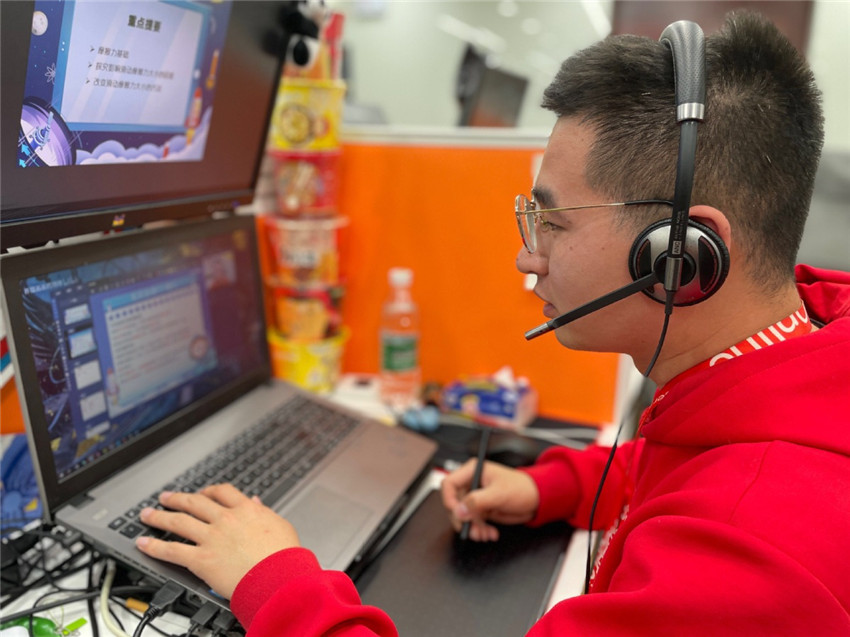A teacher from Xueersi Online School guides students at the firm’s headquarters in Zhenjiang, Jiangsu province, in November.
Minister of Education: Open Online Courses Allow Teaching Regardless of Location or Time
Countries and regions should promote open educational resources and develop massive quality digital courses as public goods to offer learning opportunities to new sectors, indicated officials and experts in the field.
China is committed to making its MOOC (Massive open online courses) resources even more available and sharing them with other nations and regions, Education Minister Chen Baosheng said at the first Global MOOC Conference on Friday. , held on and offline at Qinghua University in Beijing.
China now ranks first globally in MOOCs by number and participants, he said.
The event was sponsored by Qinghua and the UNESCO Institute for Information Technology in Education, and had as its theme “The learning revolution and transformation of higher education.”
The country began building MOOC platforms in 2013, allowing everyone to take lessons simultaneously from anywhere, Chen stressed.
By October, China already had more than 30 portals and 34,000 such courses. A total of 540 million people have participated in them and 150 million university students received credits, he said.
To cope with the COVID-19 pandemic, all Chinese universities moved their subjects online in the spring semester, with 1.08 million teachers in charge of 1.1 million courses, it reported, which created a solid foundation for the innovative promotion of digital education and MOOCs.
Its unique advantages incentivize educational equity and greater sharing of quality resources so that everyone can learn when and where they want, Chen said.
“We must continue to improve its standard with innovation and new technologies, while protecting privacy and intellectual property with laws and regulations,” he said, adding that open courses should focus on the student, with active participation to ensure the deep study.
Stefania Giannini, UNESCO’s deputy director-general for education, noted that the disruption caused by the pandemic forced educational institutions in about 30 countries to close earlier this month, affecting some 300 million students.
Although MOOCs had already opened the doors to permanent knowledge before COVID-19, at least a third of students could not access the platforms, and more than 7 million are at risk of not pursuing university studies for economic reasons, he pointed out .
If there is one lesson from the pandemic, it is that young people need teachers, he said, adding that human interaction and collaboration must remain at the core of the educational process, even at the tertiary level.
Nations must work together to ensure that all students have broadband connection, Giannini said, with professional teachers and key development for online environments and student assessment.
Andreas Schleicher, director of education and skills at the Organization for Economic Cooperation and Development, said the crisis has exposed the many deficiencies and inequalities in education systems.
The pandemic has accelerated the use of educational technology and the transformation in teaching methods, and MOOCs could allow teachers and students to access specialized material beyond text in multiple formats and in ways that bridge time and space, he said.
Qiu Yong, rector of Qinghua, said that the pandemic has caused serious damage to the educational system and traditional models, but has also promoted the first large-scale, well-organized and comprehensive application of MOOCs as a new way of educating.
“The golden opportunity is before us, we must unite to face the challenges, seize the potential opportunities and create new journeys, striving to build universities with more openness, integration and resistance,” he said.
<!–enpproperty 770110572020-12-14 14:50:55:0


